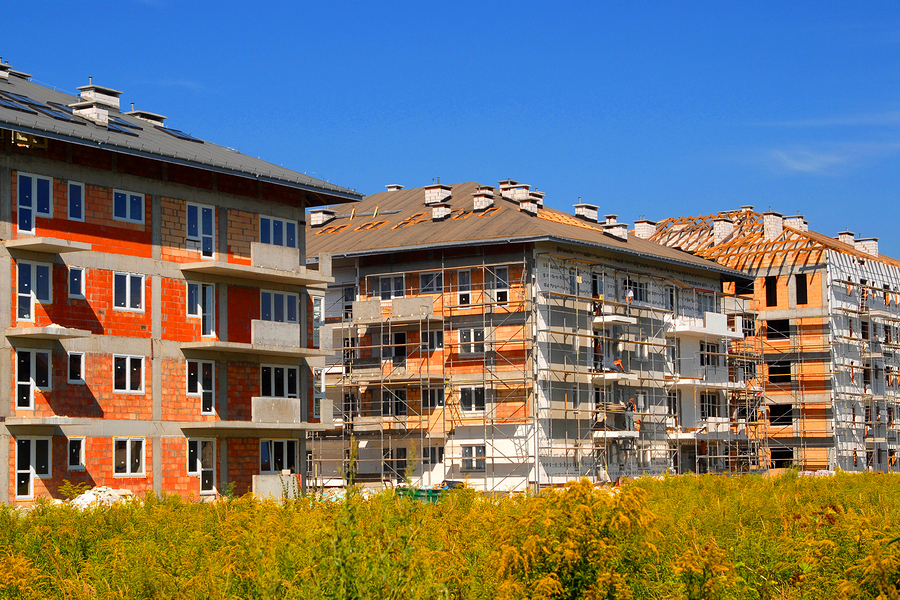Property development is appealing to fearless entrepreneurs, and for good reason. With the possibility of making dramatic profits in short period of time, property development can be a lucrative and rewarding venture. However, one small misstep can derail a project, leading to enormous setbacks, and in some cases, financial ruin. While novices might be especially vulnerable to making mistakes, seasoned professionals aren’t exactly immune.
Unfortunately, there’s no formula for ensuring that a development will be as successful as your projections (or your hopes). The good news is that you can get pretty close to guaranteeing success… as long as you do your research. Failing to secure financing and forgetting to pad your budget with an emergency fund are obvious pitfalls, but there are other, less obvious mistakes made by property developers.
Overestimating demand
Choosing an appropriate location for your development will be one your first and most important decisions. You should cherry-pick your location based on a myriad of factors including proximity to transportation lines, the physical makeup of the land, and the local economy’s climate. Here’s the thing: even if you have a prime location picked out, building where there’s an oversupply of housing will make your profits plummet.
In 2017, new apartment construction hit its highest level in 20 years, and according to data from Yardi Matrix, there’s still room for growth. With so many apartments altering the cityscapes of the hottest markets, it’s especially important to keep an eye on housing supply and demand.
Housing demand waxes and wanes, even in the most desirable markets — take Brisbane for example. The booming Australian metro has had so much development in recent years that supply has outpaced demand, causing per-unit prices to fall. Within a year that could change, but for a property developer, a little research would have likely ruled out Brisbane as a top choice for a new development.
Not conducting due diligence
Failing to “do your homework” will set any major project up for failure, and property development is no exception. With so much money on the line, it’s paramount that you conduct your due diligence and identify any environmental, financial, and legal risks before proceeding with a development. For example, have you thought about your parcel of land? How much of it is usable? How about the soil? Will it withstand the structure your architect has in mind? Where will your utilities be buried? Is there existing infrastructure in place? The list goes on, but it’s critical you know the answers.
Performing flawless due diligence each time is a pipe dream, but failing to at least attempt to eliminate your risk will doom your project from the start. Luckily, there are plenty of resources for property developers, like this “Essential 70 Point Property Development Due Diligence Checklist.” When it comes to due diligence, use your network, use your resources, and use common sense.
Choosing the cheapest contractor
As your network grows, you’ll have contractors on speed dial that fit the bill for your projects. But until then, selecting the right builders can be tricky. The path of least resistance is to gather a few quotes, set them side-by-side, and choose one based on price. However, the path of least resistance is rarely the most rewarding… and in the case of choosing contractors, it can be detrimental to your project.
Instead, use all the channels available to you: your professional network, online directories like Houzz and Angie’s List, or even your local chamber of commerce. Once you find a handful of contractors that look reputable, ask these core questions provided by Home Advisor:
- Have you completed a job similar to this before?
- Do you have a list of references I can contact?
- When would you be able to start the job?
Doing research upfront will save you from overpaying, dealing with flaky workers that throw off your schedule, and erroneously hiring inexperienced contractors. And speaking of making choices based on price: don’t select building materials that way, either. Read online reviews, talk to your colleagues, and start a dialogue with your trusted vendors.
Not being neighborly
Provided you’ve chosen a prime location for your development, chances are you’ll have neighbors that are pretty invested in their community. That said, springing a development on a neighborhood will cause a shake-up.
Instead of surprising them with a crew of contractors at the crack of dawn, become involved with the community far ahead of breaking ground. Attend local municipal meetings. Make locals a target in your marketing campaigns. Stress the benefits that your development will bring to the people who already live there. Whatever you do, don’t underestimate the power of community.
—
Ready to break ground? Read our article on how to make your next development a safe haven for future renters!




